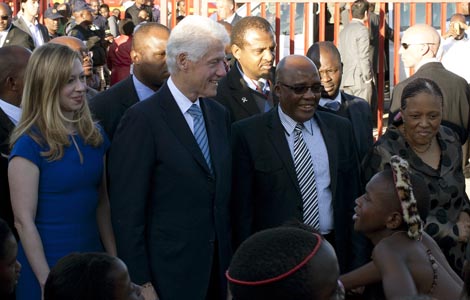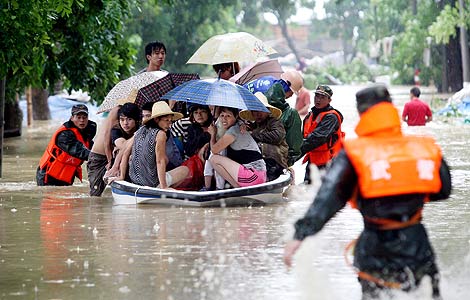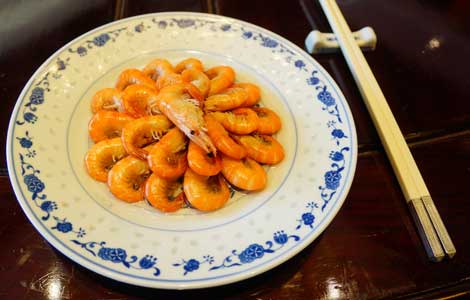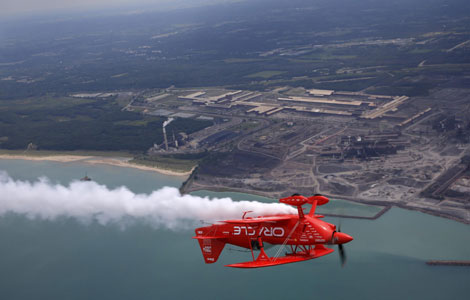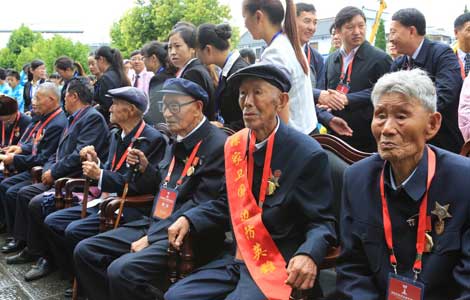Defense chief kicks off US visit
Updated: 2013-08-17 00:50
By Pu Zhendong (China Daily)
|
||||||||
Trip expected to boost military cooperation
Chinese Minister of Defense and State Councilor Chang Wanquan on Friday began his first trip to the United States since taking office in March, a visit observers said will keep up the positive momentum of military exchanges between the two countries.
The four-day trip aims to strengthen agreement on the "new type of big-country relations"that President Xi Jinping and his US counterpart Barack Obama prescribed for Sino-US ties, a Chinese Defense Ministry official said.
Chang is expected to visit the US Pacific Command in Hawaii and the Northern Command in Colorado during the weekend. It will be the first time that Washington opens its Northern Command to a top Chinese military official.
Early next week, Chang will hold talks separately with his US counterpart Chuck Hagel and the US National Security Adviser Susan Rice. He's also likely to have an informal meeting with President Obama. Media reports said Hagel is expected to pay a return visit to China in 2014.
The Chinese delegation will also make an official visit to Canada later.
Experts said it's more rational to view Chang's visit as a regular military-to-military exchange between Beijing and Washington, instead of an attempt to solve any substantive issues.
Zhao Weibin, a researcher at the Academy of Military Science of the People's Liberation Army, said one important goal of the visit is to explain to the Pentagon the concept and implications of the "new type of military relations"between the two countries.
"China and the US should ditch the Cold War mentality of perceiving each other as a threat and build mutual trust through further cooperation,"Zhao said.
"That's the implication of the new Sino-US relations on the military level and China has been proposing a series of collaboration ideas on anti-terrorism, peacekeeping and disaster-relief operations to materialize the concepts,"she added.
Military ties between China and the US have been positive impetus since 2012 when the two countries both ushered in new governments.
In April, US Chairman of the Joint Chiefs of Staff, General Martin Dempsey, visited China and talked about his hope of working with Beijing to enhance trust and overcome obstacles.
During the China-US Strategic and Economic Dialogue in July, both sides agreed to "strengthen the military-to-military relationship and to make efforts to raise the relationship to a new level”.
Xu Qiyu, a researcher at the National Defense University of the PLA, said military divergences between China and the US, which have been rocky over in the past 30 years, cannot be resolved overnight, but controlling disparities through established mechanisms should be advocated by both sides.
Representatives of the Chinese military also participated in the first round of talks of a Sino-US cybersecurity working group amid mounting criticism between the two countries over the issue.
Zhao said both sides, instead of accusing each other, should stop exaggerating the current situation and work on warning and notification mechanisms to minimize dangers.
"Internet security poses a new challenge but also an opportunity for China and the US to deepen trust by setting up regulations together,"Zhao said.
In 2012, the two militaries engaged in bilateral counter-piracy exercises in the Gulf of Aden and a joint tabletop exercise in humanitarian assistance and disaster relief in Chengdu.
China has also accepted an invitation from the US to attend the 2014 Rim of the Pacific Exercise, the world's largest international naval exercise, which will take place in the waters off Hawaii. Chinese Naval Commander Admiral Wu Shengli will conduct a visit to the US in September.
Xu said the exercise offers a good opportunity for the two militaries to not only boost understanding and trust, but also to coordinate with each other on a multilateral basis.
"Sino-US ties are constantly affected by other countries' policies and actions, especially in the Asia-Pacific region,"Xu said.
Most Viewed
Editor's Picks

|

|

|

|

|

|
Today's Top News
China trims US Treasury holdings in June
Pentagon hails defense chief's visit
China, US impacts Asian economies differently
Debt crisis unlikely in short term: Think tank
CSRC blames Everbright Securities for spike
SAFE denies intense capital outflow
Dozens die in Egyptian bloodbath
Watchdog won't block Abe's military changes
US Weekly

|

|
